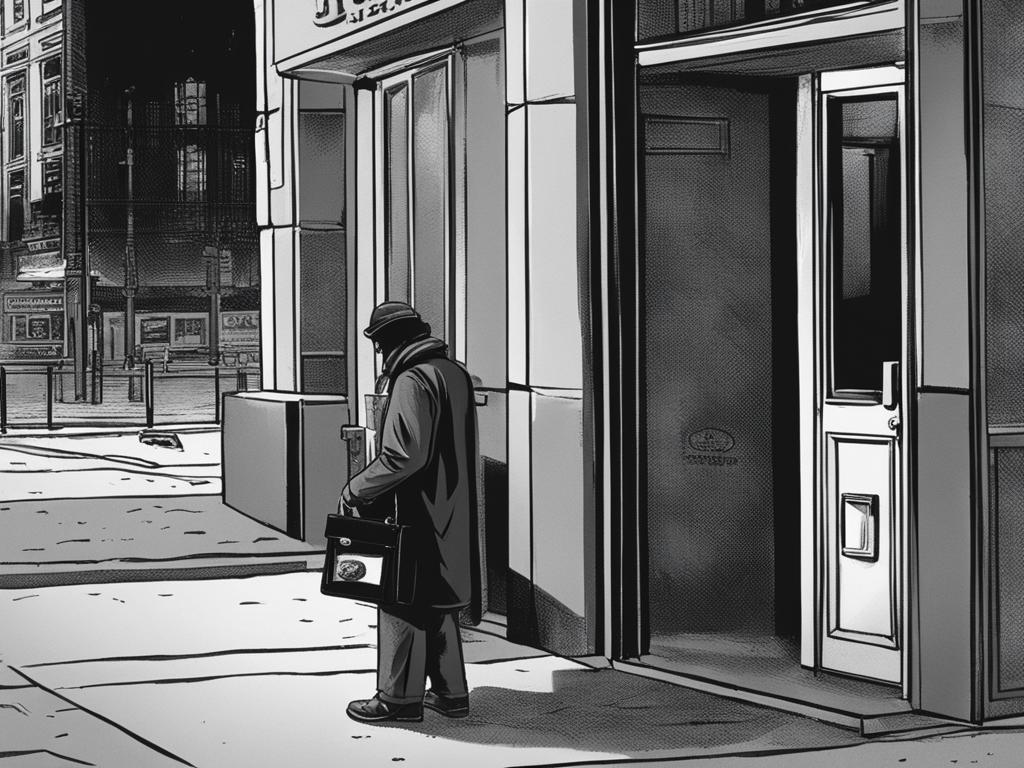Getting Theft Charges in Texas Dropped: A Comprehensive Guide
Welcome to our comprehensive guide on getting theft charges dropped in Texas. If you are facing theft charges, it’s important to understand the legal landscape and explore your options for a favorable outcome. In this guide, we will provide valuable insights into Texas shoplifting laws, penalties, legal defenses, and strategies to fight theft charges. Whether you are a minor facing shoplifting charges or an adult accused of theft, we’ve got you covered.
Key Takeaways:
- Understanding Texas shoplifting laws and penalties is crucial when facing theft charges.
- Legal defenses and options for reducing charges or punishment are available to those accused of theft.
- Hiring an experienced theft defense attorney is essential for a strong defense.
- Collateral consequences, such as employment and immigration issues, can result from a theft conviction.
- Knowing the timeline of a criminal theft case and how to navigate it is vital.
Texas Shoplifting Laws and Penalties
Shoplifting is a serious offense under Texas law, with penalties that vary depending on the amount stolen. Understanding the specific laws and potential consequences is important for anyone facing shoplifting charges in Texas.
In Texas, shoplifting is considered theft, which is defined as unlawfully appropriating property with the intent to deprive the owner of its value or use. The severity of the offense is determined by the value of the stolen property:
| Amount Stolen | Classification | Potential Penalty |
|---|---|---|
| Less than $100 | Class C Misdemeanor | Fine of up to $500 |
| $100 or more but less than $750 | Class B Misdemeanor | Up to 180 days in jail and/or a fine of up to $2,000 |
| $750 or more but less than $2,500 | Class A Misdemeanor | Up to 1 year in jail and/or a fine of up to $4,000 |
| $2,500 or more but less than $30,000 | Felony of the Third Degree | 2 to 10 years in prison and/or a fine of up to $10,000 |
| $30,000 or more but less than $150,000 | Felony of the Second Degree | 2 to 20 years in prison and/or a fine of up to $10,000 |
| $150,000 or more | Felony of the First Degree | 5 to 99 years in prison and/or a fine of up to $10,000 |
It’s important to note that these penalties may be enhanced if the person has prior theft convictions or if other aggravating factors are involved, such as using an emergency exit during the commission of the offense.
Being aware of the specific shoplifting laws and penalties in Texas can help individuals understand the potential consequences they may face if charged with this offense. It is always recommended to consult with a skilled criminal defense attorney to navigate the legal process and explore possible defenses to mitigate the charges or penalties.
Shoplifting Laws for Minors in Texas
When it comes to shoplifting, the consequences can be even more severe for minors in Texas. In addition to facing criminal charges, minors may also put their parents or guardians at risk of being sued by the retailer for damages. It’s important for parents and guardians to be aware of the potential legal and financial implications of their child’s actions.
Under Texas law, retailers have the right to pursue civil action against the parents or guardians of a minor who is caught shoplifting. This means that in addition to any criminal penalties, such as fines or probation, the parents or guardians may be held responsible for compensating the retailer for any stolen merchandise or damages incurred during the incident.
It’s worth noting that the retailer’s ability to sue the parents or guardians for damages also extends to adult shoplifters in certain cases. This emphasizes the serious nature of shoplifting offenses and the potential for financial consequences beyond the criminal charges.
When it comes to addressing shoplifting charges for minors, it’s important to understand that pretrial diversion programs, which allow individuals to complete certain requirements in exchange for dismissing or reducing charges, may have limitations for minors with a history of shoplifting. The decision to pursue a diversion program will depend on the specific circumstances of the case and the discretion of the prosecutor.

Table: Potential Damages Sought from Parents or Guardians
| Type of Damage | Potential Compensation |
|---|---|
| Stolen Merchandise | Cost of the stolen items |
| Damage to Store Property | Cost of repairs or replacement |
| Legal Fees | Cost of pursuing civil action |
Defenses Against Shoplifting Charges
When facing shoplifting charges, it is crucial to employ effective defenses to reduce charges or avoid jail time. Several defenses can be employed depending on the specific circumstances of the case.
1. Honest Mistake Defense
In some cases, individuals may have unintentionally taken merchandise without any intent to steal. This could be due to distraction, confusion, or forgetfulness. The honest mistake defense argues that there was no criminal intent behind the act and seeks to prove that the individual did not intentionally commit shoplifting. This defense may be strengthened if the person promptly returns the stolen merchandise upon realizing their mistake.
2. Returning Stolen Property
Returning stolen property can be a powerful defense strategy. By voluntarily returning the stolen merchandise before being caught or charged, it demonstrates remorse and a willingness to rectify the situation. This can potentially lead to reduced charges or punishment, as it shows the court that the individual took immediate action to correct their mistake and make amends.
3. Pretrial Diversion Programs
One alternative to criminal prosecution is participating in a pretrial diversion program. These programs aim to rehabilitate offenders and divert them from the traditional criminal justice system. They may involve completing community service, participating in counseling or education programs, and paying restitution to the affected retailer. Successful completion of a pretrial diversion program can result in the dismissal of charges, allowing individuals to avoid a criminal record.
It is important to consult with a qualified theft defense attorney to determine the most appropriate defense strategy based on the specific details of the case. They can provide guidance, negotiate with prosecutors, and advocate for the best possible outcome.
Strategies to Fight Theft Charges
When facing theft charges, it is crucial to employ effective strategies to defend yourself and protect your rights. Hiring a qualified theft defense attorney who specializes in criminal law is essential to navigate the complex legal process. An experienced attorney will understand the nuances of theft laws and can craft a strong defense tailored to your specific case.
One of the possible defenses against theft charges is the argument of an honest mistake. If there was no intent to steal and you can prove that the alleged theft was a misunderstanding or unintentional, it could potentially weaken the prosecution’s case against you. Returning the stolen property can also be a defense strategy that may lead to a reduction in sentencing.
However, it’s important to note that not all defense strategies are applicable to every theft charge. The defense of false pretenses, for instance, may not be viable for certain types of theft. Similarly, the defense of entrapment could be argued if you were coerced or manipulated into committing the theft. The defense of duress can also be used if you were forced to steal under threat of harm.
| Defense Strategy | Applicability |
|---|---|
| Honest Mistake | Depends on intent |
| Returning Stolen Property | Potential sentence reduction |
| False Pretenses | Not applicable to all types of theft |
| Entrapment | Coercion or manipulation |
| Duress | Forced under threat |
It’s important to consult with a theft defense attorney to determine the most effective strategy based on the specifics of your case. They can assess the evidence, evaluate the strength of the prosecution’s case, and provide expert guidance throughout the legal process. Be sure to choose a qualified attorney who has a track record of success in handling theft cases.
Special Types of Theft under Texas Law
In addition to shoplifting, Texas law recognizes various other types of theft offenses. Understanding these specific categories is essential for individuals facing theft charges or seeking legal advice. The following are some special types of theft offenses commonly seen in Texas:
- Theft of Trade Secrets
- Theft of Services
- Unauthorized Use of a Vehicle
- Retail Theft
- Theft of TV Services
- Cargo Theft
- Theft of Petroleum
- Mail Theft
- Civil Theft
Each of these offenses has its own specific elements and penalties. It is crucial to consult with a knowledgeable theft defense attorney who can provide guidance tailored to the particular circumstances of the case.
Theft of Trade Secrets
Theft of trade secrets involves the unauthorized acquisition, use, or disclosure of trade secrets belonging to a business or individual. Trade secrets can include formulas, processes, customer lists, or proprietary information that provide a competitive advantage. The penalties for theft of trade secrets can range from fines to imprisonment, depending on the value of the trade secret and the intent of the offender.
Theft of Services
Theft of services occurs when a person knowingly obtains services without the intent to pay for them. This can include actions such as evading payment for professional services, hotel accommodations, or utilities. The penalties for theft of services can vary based on the value of the services obtained.
Unauthorized Use of a Vehicle
Unauthorized use of a vehicle involves the use of a vehicle without the owner’s permission. This offense is different from car theft, as it does not involve permanently depriving the owner of their vehicle. Unauthorized use of a vehicle can range from a misdemeanor to a felony, depending on the circumstances and the value of the vehicle.
| Theft Offense | Penalties |
|---|---|
| Retail Theft | Fines, probation, community service |
| Theft of TV Services | Fines, probation, restitution |
| Cargo Theft | Fines, imprisonment, restitution |
| Theft of Petroleum | Fines, imprisonment, restitution |
| Mail Theft | Fines, imprisonment, restitution |
| Civil Theft | Fines, restitution |
It is crucial to remember that each theft offense carries its own legal consequences. Seeking the assistance of a qualified theft defense attorney is vital in navigating the complexities of the legal system and formulating a strong defense strategy tailored to the specific charges.
Collateral Consequences of a Theft Conviction
The consequences of a theft conviction extend beyond fines and jail time, impacting various aspects of an individual’s life. Understanding the collateral consequences is crucial in order to make informed decisions when facing theft charges in Texas. Some of the key areas affected include:
- Employment: A theft conviction can significantly hinder employment prospects. Many employers conduct background checks, and a criminal record may be a red flag, especially for positions that involve handling money or sensitive information.
- Occupational Licenses: Certain professions require licenses or certifications, such as lawyers, healthcare professionals, or real estate agents. A theft conviction can jeopardize the issuance or renewal of these licenses, potentially hindering career advancement.
- Immigration Status: Non-citizen individuals convicted of theft may face immigration consequences, including deportation or denial of naturalization.
- Military Service: A theft conviction can have an impact on eligibility for military service or may result in disciplinary actions for active-duty service members.
- Gun Ownership: Convicted felons are generally prohibited from owning firearms or ammunition under federal law.
- Right to Vote: Some states restrict voting rights for individuals with felony convictions, although restoration of voting rights varies by state.
These collateral consequences highlight the importance of fighting theft charges and working towards getting them dropped. Seeking the assistance of an experienced theft defense attorney is crucial to navigate the legal process and protect one’s rights.
“A theft conviction can have long-lasting ramifications, impacting employment, licenses, immigration status, military service, gun ownership, and voting rights. It is essential to understand the collateral consequences and take appropriate legal action to protect one’s future.”

Table: Collateral Consequences of a Theft Conviction
| Consequence | Description |
|---|---|
| Employment | Difficulty in finding or maintaining employment due to a criminal record, especially in positions involving money or sensitive information. |
| Occupational Licenses | Risk of license denial or revocation for professions that require licenses or certifications. |
| Immigration Status | Potential negative impact on immigration status, potential for deportation or denial of naturalization. |
| Military Service | Eligibility for military service may be affected, and active-duty service members may face disciplinary actions. |
| Gun Ownership | Felony conviction can result in a prohibition on owning firearms or ammunition. |
| Right to Vote | Restrictions on voting rights for individuals with felony convictions, although restoration of voting rights varies by state. |
Criminal Theft Case Timeline
Understanding the timeline of a criminal theft case is crucial for anyone facing charges or seeking legal advice. From the initial hearing to the final trial, several key stages shape the progression of a theft case. It’s important to familiarize yourself with this timeline to better understand the process and ensure that your rights are protected.
1. Pretrial Negotiations and Plea Bargaining
After the initial arrest and booking, the first opportunity for resolving a theft case typically comes during pretrial negotiations and plea bargaining. During this phase, the prosecution and defense may engage in discussions to explore potential plea deals or other options for resolving the case without a trial. This stage often involves careful investigation, evidence assessment, and legal strategy development by both sides.
2. Pretrial Motions and Hearing
Pretrial motions can significantly impact the outcome of a theft case. These motions can address issues such as the admissibility of evidence, suppression of statements, or challenges to the constitutionality of the arrest or search and seizure. The defense may file motions to dismiss charges or suppress evidence, while the prosecution may seek to introduce certain evidence. The judge will review these motions and schedule a hearing to make rulings on these matters.
3. Criminal Trial
If a plea deal cannot be reached or the case is not dismissed, the theft case proceeds to trial. The trial is where both sides present their case to a judge or jury, who will determine the defendant’s guilt or innocence. The trial involves presenting evidence, examining witnesses, and making arguments to persuade the judge or jury of the defendant’s innocence or guilt. After the presentation of evidence, the judge or jury will deliberate and deliver a verdict.
Frequently Asked Questions about Theft Charges in Texas
As theft charges can have serious legal consequences, it’s important to have a clear understanding of the laws and procedures surrounding such cases in Texas. Here are answers to some frequently asked questions to help you navigate the complexities:
1. Do I need a lawyer for petty theft or shoplifting charges?
While it’s not legally required to have a lawyer for every theft charge, it is highly recommended. A qualified attorney can provide valuable guidance and build a strong defense strategy tailored to your specific case. They can help protect your rights, negotiate with prosecutors, and minimize the potential consequences.
2. How do prior theft convictions impact new charges?
Prior theft convictions, even if unrelated to the current charge, can significantly impact the outcome of your case. Repeat offenses may result in harsher penalties, including longer jail time, higher fines, or even felony charges. It is crucial to consult with an attorney who can assess the specifics of your situation and advise you accordingly.
3. Is it possible to get theft charges dismissed?
While every case is unique, getting theft charges dismissed is possible under certain circumstances. A skilled attorney can review the evidence against you, identify weaknesses in the prosecution’s case, and explore potential defenses. They may also negotiate with the prosecution for a reduction in charges or alternative resolutions, such as diversion programs or plea bargains.
4. Should I talk to the police without legal representation?
It is generally advisable to refrain from speaking to the police without legal representation present. Anything you say can be used against you, and even innocent statements may be misinterpreted or used to build a case against you. It’s important to assert your right to remain silent and seek legal advice before engaging in any discussions with law enforcement.
5. What is the difference between misdemeanor and felony theft charges?
In Texas, theft charges are categorized based on the value of the stolen property. Misdemeanor theft typically involves property valued at less than $1,500, while felony theft involves higher values. The penalties for felony theft are more severe, with potential imprisonment for longer periods and higher fines. Consult with an attorney to understand the specific consequences associated with your charge.
6. How can I prove my innocence in a theft case?
To prove your innocence in a theft case, you and your attorney will need to present evidence that counters the prosecution’s claims. This can include providing alibis, demonstrating mistaken identity, or gathering witness testimonies that support your version of events. Your attorney will guide you on the best strategies to establish your innocence and build a strong defense.
7. What is the difference between theft and robbery?
Theft and robbery are distinct crimes under Texas law. Theft involves unlawfully taking or exercising control over someone else’s property without their consent and with the intent to deprive them of it. Robbery, on the other hand, involves the use of force, threats, or intimidation to take someone’s property directly from their person or presence. Robbery carries more severe penalties due to the additional element of violence or intimidation.

Understanding the intricacies of theft charges in Texas can help you navigate the legal process more effectively. However, each case is unique, and it is crucial to consult with an experienced attorney to receive personalized guidance and support. By working with a skilled legal professional, you can protect your rights, explore defense options, and strive for a favorable outcome in your theft case.
Fort Worth Texas Theft Defense Attorney
If you are facing theft charges in Fort Worth, Texas, it is crucial to seek the assistance of an experienced theft defense attorney. The outcome of your case can have significant consequences, including fines, jail time, and long-term impacts on your personal and professional life. By hiring a skilled criminal defense lawyer, you can ensure that your rights are protected and that you have the best possible chance of achieving a favorable outcome.
At the Fulgham Law Firm, we understand the intricacies of theft laws in Texas and have extensive experience representing clients in theft-related cases. Our team of dedicated attorneys will thoroughly analyze the details of your case, gather evidence, and develop a strong defense strategy tailored to your specific situation. We will advocate for your rights, fight to get your charges dropped or reduced, and guide you through the legal process every step of the way.
With our experienced Fort Worth Texas theft defense attorney by your side, you can have confidence in knowing that you have a strong advocate fighting for you. We have a deep understanding of theft laws, courtroom procedures, and negotiation tactics, enabling us to provide you with the best possible defense. Whether you are facing charges for shoplifting, theft by deception, or any other theft offense, we will work tirelessly to protect your rights and secure the best possible outcome for your case.

If you are in need of a skilled and experienced theft defense attorney in Fort Worth, Texas, contact the Fulgham Law Firm today for a confidential legal review of your case. Don’t leave your future to chance – let us fight for you and help you navigate the complexities of the legal system.
Conclusion
The comprehensive guide provided valuable insights into theft charges in Texas and effective strategies to get them dropped. By understanding Texas shoplifting laws and penalties, individuals can better navigate the legal system and protect their rights.
Legal defenses play a crucial role in fighting theft charges. Whether through plea bargaining, pretrial diversion programs, or proving innocence, seeking assistance from an experienced theft defense attorney can significantly impact the outcome of a case. Their knowledge and expertise can help reduce charges or punishment, and even lead to dismissal.
It is essential to recognize the potential consequences of a theft conviction beyond fines and jail time. Collateral consequences such as employment difficulties, occupational license issues, immigration challenges, and impacts on military service, gun ownership, and voting rights can have long-lasting effects. Therefore, it is crucial to proactively fight theft charges to avoid these collateral consequences.
To safeguard your rights and seek justice in the face of theft charges in Texas, it is highly recommended to consult an experienced theft defense attorney. The Fulgham Law Firm, with its expertise and dedication, can provide confidential legal reviews and guidance in understanding theft laws and penalties. Choosing the right defense lawyer is crucial in building a strong case and increasing the chances of a favorable outcome.
FAQ
What are the penalties for shoplifting in Texas?
The penalties for shoplifting in Texas vary depending on the amount stolen. It can result in a misdemeanor or felony charge, with potential fines and jail time associated with each level of offense.
Can parents or guardians be sued for damages if their minor commits shoplifting?
Yes, if a minor commits shoplifting, the child’s parents or guardians could be sued by the retailer for damages.
Can adults be sued for damages if they shoplift?
Yes, adults who shoplift can also be sued by the retailer for damages.
What legal defenses are available against shoplifting charges?
There are several legal defenses available against shoplifting charges, including the defense of honest mistake, returning stolen property, lack of false pretenses, entrapment, and duress.
Are there options for reducing shoplifting charges or punishment?
Yes, plea bargains and pretrial diversion programs can be options for reducing shoplifting charges or punishment.
Can pretrial diversion programs help avoid criminal prosecution for shoplifting?
Yes, pretrial diversion programs can be an alternative to criminal prosecution for shoplifting charges.
Can a shoplifting criminal record be expunged?
Yes, it may be possible to expunge a shoplifting criminal record, which can have benefits for future job searches.
What are the different types of theft offenses recognized under Texas law?
Theft offenses recognized under Texas law include theft of trade secrets, theft of services, unauthorized use of a vehicle, retail theft, theft of TV services, cargo theft, theft of petroleum, mail theft, and civil theft.
What are the potential consequences of a theft conviction?
In addition to fines and jail time, a theft conviction can have an impact on employment, occupational licenses, immigration status, military service, gun ownership, and the right to vote.
What is the timeline of a criminal theft case?
The timeline of a criminal theft case can vary, but it generally involves pretrial negotiations, plea bargaining, pretrial motions, and a criminal trial.
Do I need a lawyer for petty theft or shoplifting charges?
It is highly recommended to seek the assistance of a lawyer for petty theft or shoplifting charges, as they can help protect your rights and provide legal guidance throughout the process.
Can prior theft convictions impact new charges?
Yes, prior theft convictions can have an impact on new charges and may result in harsher penalties.
Is it possible to get theft charges dismissed?
It may be possible to get theft charges dismissed, depending on the specific circumstances of the case and the strength of the defense.
Should I talk to the police without legal representation?
It is generally advised not to talk to the police without legal representation, as anything you say can be used against you in court.
What is the difference between misdemeanor and felony theft charges?
Misdemeanor theft charges generally involve lower-value stolen goods, while felony theft charges involve higher-value stolen goods or repeat offenses.
How can I prove my innocence in a theft case?
Proving innocence in a theft case requires presenting evidence and building a strong defense strategy with the help of a criminal defense attorney.
What is the distinction between theft and robbery under Texas law?
Theft involves taking property without the use of force, while robbery involves taking property from a person using force or threat.
Why is it important to hire an experienced theft defense attorney in Fort Worth, Texas?
Hiring an experienced theft defense attorney in Fort Worth, Texas is important because they have knowledge of the local laws and court system and can provide effective representation for your case.
What are the benefits of having a knowledgeable theft defense attorney?
A knowledgeable theft defense attorney can help navigate the legal process, build a strong defense, negotiate with prosecutors, and protect your rights throughout the case.

